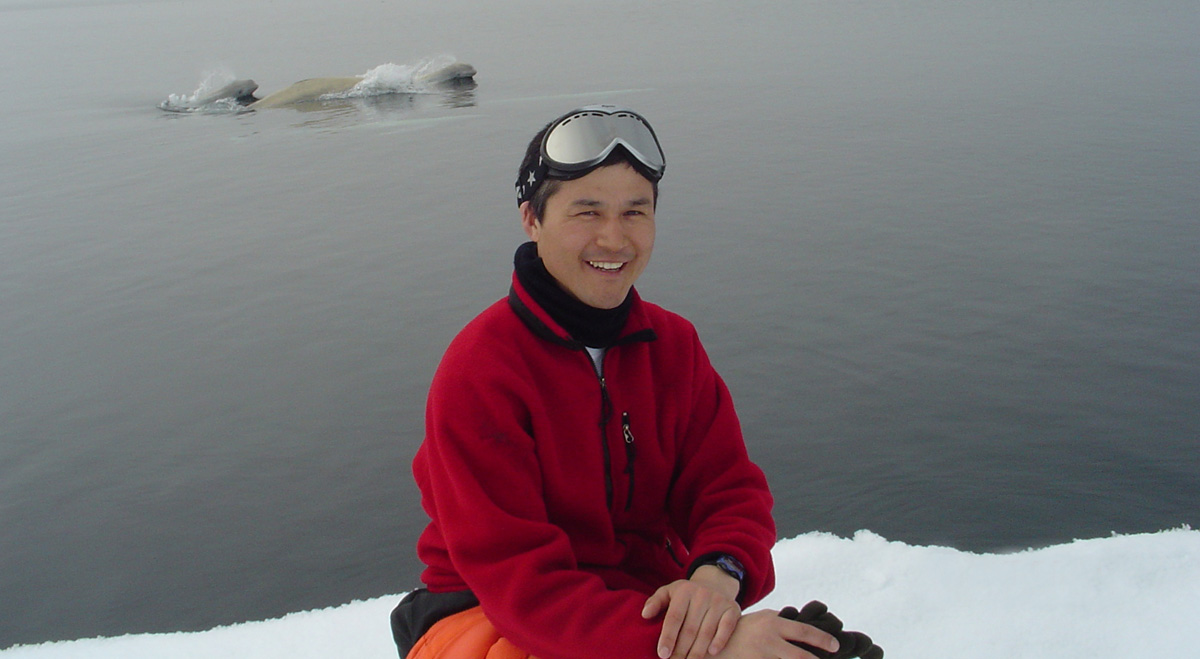A Huddersfield geophysicist will join the first-ever, year-round expedition to the Arctic to bring clarity to the full evolution of sea ice floe dynamics, fragmentation and lateral melt
AS the world calls for global action against climate change at the 2019 UN Climate Action Summit, current predictions around the decline of Arctic sea ice could be far worse than many believe.
Calculations for the current forecasts are based on mathematical equations determined from environmental processes that were measured before the Arctic began to undergo dramatic change.
Dr Phil Hwang is a Geophysicist and a Senior Lecturer in Physical Geography at the University of Huddersfield and he will join a multi-national research team on what is to be the first-ever, year-round expedition into the central Arctic Ocean. His job will be to undertake new studies into the Arctic climate system during the depth of the polar night.
The polar night occurs in the northernmost and southernmost regions of the Earth when the night lasts for more than 24 hours and the length of the darkness can vary from 20 hours at the Arctic Circle to 179 days at the North Pole.
Dr Hwang’s research is to understand the dynamics of Arctic sea ice and its effect on sea ice breakup/melting in summer. He explains how the current climate model, used to predict changes in our climate, uses equations calculated from when Arctic sea ice was thicker and slower-moving. “A critical new dataset gathered from present-day Arctic sea ice is imperative if we are ever to receive a more accurate and realistic forecast on the future of our climate,” said Dr Hwang.
His approach, when he joins the expedition for two months next summer, will use a combination of sea ice buoys, helicopter survey and satellite remote sensing. “This way, we will be able to observe the full evolution of sea ice floe dynamics, fragmentation and lateral melt,” he said.
Video news
In this video, Dr Phil Hwang explains how numerical equations used by the current climate model are based on measurements taken from the 'old Arctic' when sea ice was thicker and slower-moving. However, sea ice in the 'new Arctic' is thinner, moves faster and during the Arctic summer, the ice becomes fragmented, breaking-up into smaller pieces. He says a critical new dataset is needed if the world is ever to receive an accurate and more realistic forecast on the future of our changing climate.
- Watch more of the University's video content on the University's Research News YouTube Channel.
MOSAiC Programme
After more than five years of planning, the Multi-Disciplinary drifting Observatory for the study of Arctic Climate (MOSAiC) programme, led by the Alfred Wegener Institute in Germany, will see the research icebreaker RV Polarstern frozen into the Arctic sea ice and then drift across the top of the Arctic Ocean.
The icebreaker officially set sail from Norway last month and over the next twelve months’ hundreds of scientists from 19 countries will join the expedition at different intervals throughout RV Polarstern’s journey.
The expedition’s seven UK projects have been awarded £1.8 million of Natural Environment Research Council (NERC) funding, from the UK Government’s Business department, to ensure the UK is at the forefront of international scientific collaboration.
Over the course of the year, the scientists will conduct a range of marine, atmospheric, biological and sea ice-related research from the floating platform, the field camps and the advanced remote and autonomous vehicles. It is expected the vessel will complete its drift by October 2020.
Science Minister Chris Skidmore said: “The UK has a proud history of polar exploration and scientific discoveries, from Ernest Shackleton to Sir John Franklin.
“This latest polar expedition is the biggest ever undertaken and illustrates the extent and ambition of our international collaborations in the search for answers on climate change. With the Arctic ice cap melting at an alarming rate, it is imperative we understand the consequences of polar changes on the rest of the world.
“The work of the dedicated researchers on this ambitious project, right at the heart of the Arctic region, will help us do just that. This voyage could provide the way for us all to have a safer, greener and brighter future.”
More Stories
The fight against Malaysian wildlife crime
The World Wildlife Fund invited Dr Melanie Flynn to advise judges in Malaysia on introducing sentencing guidelines for wildlife crime
Lead roles for Disaster Risk Reduction experts
Professors Richard Haigh and Dilanthi Amaratunga, spoke at the sixth session of the Global Platform for Disaster Risk Reduction
Big data in the space and environmental industries
PhD researcher Guy Beech sets his sights on a common standard for the recording, storage and retrieval of the big data

